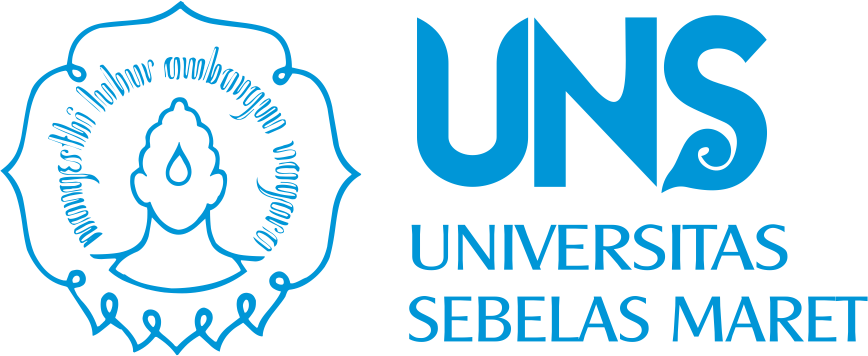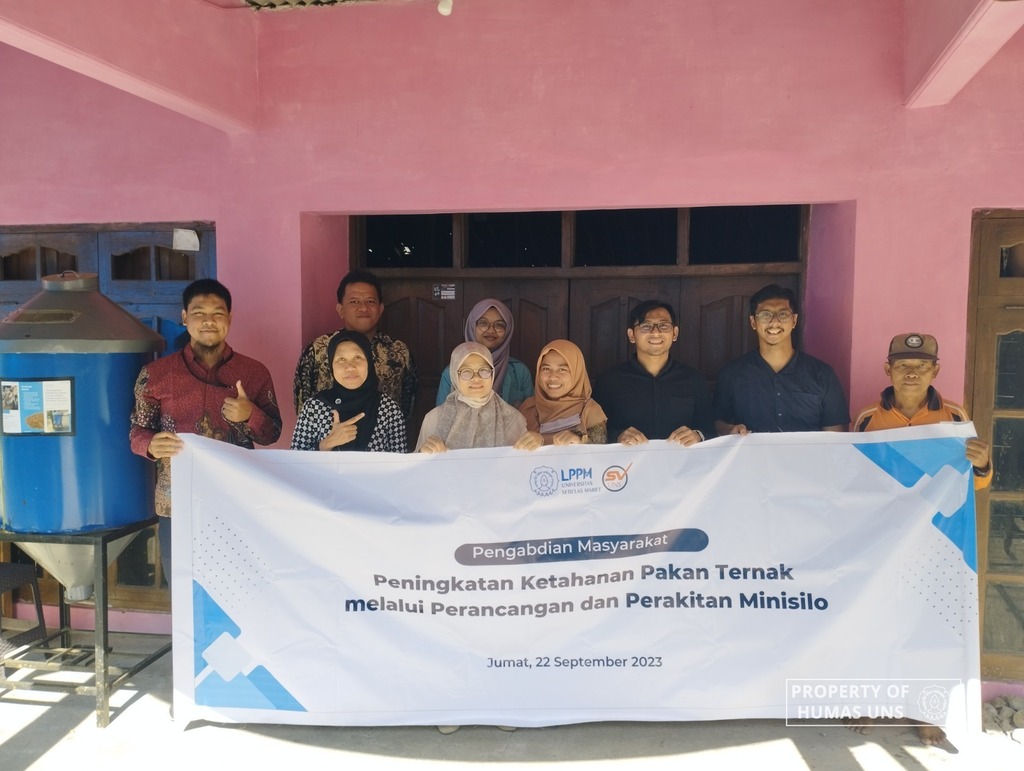UNS — Six lecturers from the Chemical Engineering Study Program (Prodi) at the Vocational School (SV) of Universitas Sebelas Maret (UNS) Surakarta, who are members of the Waste Processing Technology and Waste Utilization Research Group, organized a socialization activity on the design, operation, and maintenance procedures of livestock feed storage devices for small-scale cattle farmers. This event took place in Kalikijing, Potronayan, Nogosari District, Boyolali Regency on Friday (22/9/2023).
This activity is a form of community service program from UNS aimed at contributing to the needs of the local community. The need for livestock feed storage arose from the issues faced by partners of the Research Group on Waste Processing Technology and Waste Utilization, specifically the durability of livestock feed when stored for an extended period.
Paidi and Argo Baskoro, cattle farmers in Kalikijing, Potronayan, Nogosari District, use pelletized feed because compounded feed requires longer preparation time, raw materials (such as tofu pupl and rice bran) are difficult to obtain, and the proportion of feed composition is challenging to measure accurately, making it difficult to control the weight of the cattle. Improper storage and measurement of pelletized feed can negatively impact cattle growth.

“The issue we have been facing is that our pelletized feed turns white, like fungus, causing our cattle to refuse to eat,” Argo Baskoro said.
Through research led by Firman Asto Putro, S.T., M.T., a livestock feed storage device in the form of a 200 kg capacity mini silo equipped with a digital scale was designed and manufactured. Demonstrating the use of this device for a month at the partner farmers’ location yielded satisfactory results. “The white coloration is no longer appearing in the feed, and there’s a physical change in the cattle, as they appear more robust and larger,” Paidi said.
During this socialization event, Firman Asto Putro, S.T., M.T. explained that this improvement is due to proper storage methods and the accurate measurement of feed. He also detailed the designs, production, and operation procedures of the mini silo. “The hope is that, in the future, our farmer partners will be capable of designing, creating, and operating livestock feed storage devices according to their required capacity,” Firman explained.HUMAS UNS
Reporter: Dwi Hastuti

